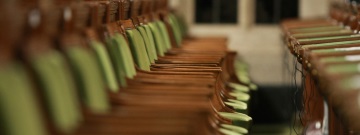Chapter 3 Privileges and Immunities

The privileges of this House and its members are not unlimited, but they are nonetheless well established as a matter of parliamentary law and practice in Canada today, and must be respected by the courts. Judges must look to Parliament for precedents on privilege, not to rulings of their fellow judges since it is in Parliament where privilege is defined and claimed.
SPEAKER PETER MILLIKEN
(Debates, May 26, 2003, p. 6415)
The rights accorded to the House and its Members to allow them to perform their parliamentary functions unimpeded are referred to as privileges or immunities. In modern parlance, the term “privilege” usually conveys the idea of a “privileged class”, with a person or group granted special rights or immunities beyond the common advantages of others. Parliamentary privilege refers, however, to the rights and immunities that are deemed necessary for the House of Commons, as an institution, and its Members, as representatives of the electorate, to fulfill their functions. It also refers to the powers possessed by the House to protect itself, its Members and its procedures from undue interference so that it can effectively carry out its principal functions which are to legislate, deliberate and hold the government to account.1 In that sense, parliamentary privilege can be viewed as the independence Parliament and its Members need to function unimpeded.
Privilege has long been an important element of our tradition of government. The practices and precedents of the House of Commons of Canada regarding parliamentary privilege stretch far back into colonial times. At an early stage, the young assemblies of the colonies, modelling themselves on Westminster, claimed the privileges of the British House, though without statutory authority. At Confederation, the privileges of the British House were made applicable to the Canadian Parliament in the Constitution Act, 18672, and for many years the Canadian House continued to look to the experience of the British House for guidance in matters of parliamentary privilege.3
The origins of the privileges enjoyed by the House of Commons in the United Kingdom were a product of a direct and real threat from the Crown and the House of Lords. As the threat subsided, the thrust of the history of privilege has been towards defining those rights and immunities more narrowly, reflecting the reality that all privileges enjoyed by the House and its Members ultimately derive from the electorate. The privileges of the Canadian House of Commons were inherited from the United Kingdom without the need to overcome physical threats and challenges. They enable the institution of Parliament to flourish and individual Members to fulfill the functions for which they were elected.
This chapter will briefly summarize the evolution of privilege in the United Kingdom and in Canada, discuss the rights and immunities of the House and its Members, and describe the procedures by which matters of privilege are raised and dealt with in the House.4